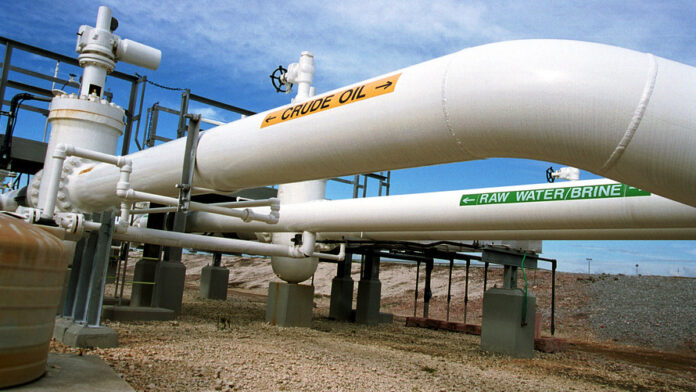In a recent emergency resolution, the European Parliament has strongly denounced the devastating consequences of oil mega projects in Uganda and Tanzania, particularly highlighting the negative impacts of French multinational Total Energies’ Tilenga and East Africa Crude Oil Pipeline (EACOP) projects.
The resolution cites “human rights violations,” “acts of intimidation,” “judicial harassment,” and “immense” risks and impacts on local communities, the environment, and the climate.
TotalEnergies, in collaboration with the China National Offshore Oil Corporation, signed a $10-billion agreement last year to develop oilfields in Uganda and transport the crude through a 1,445-kilometer (900-mile) pipeline to Tanzania’s Indian Ocean port of Tanga via the EACOP.

However, the EACOP project has faced vehement opposition from human rights activists and environmental groups, attracting legal action in France and drawing criticism in the European Parliament. TotalEnergies maintains that the displaced individuals have been fairly compensated for their land, and measures have been taken to protect the environment.
Nonetheless, Human Rights Watch (HRW) contends that the mega-project will irreparably harm fragile ecosystems and alleges that some of the expected 100,000 displaced individuals have been poorly treated.
In a comprehensive research effort, HRW conducted over 90 interviews, including 75 with displaced families, who reported delayed or inadequate compensation. Some families claimed to have gone into debt while waiting for compensation, and 37 cases were documented where children were forced to drop out of school due to their families’ financial constraints.

HRW also revealed instances where compensation agreements were signed by individuals who couldn’t read the English language in which they were presented. Researchers noted that the presence of government and security officials at public meetings created an intimidating atmosphere.
Felix Horne, senior environment researcher at HRW, emphasized the disastrous consequences of the EACOP project on both the affected communities and the planet. He condemned the inadequate compensation provided by TotalEnergies, stating, “EACOP has been a disaster for the tens of thousands who have lost the land that provided food for their families and an income to send their children to school, and who received too little compensation from TotalEnergies.”
Despite the European Parliament’s call for a delay of the project due to “rights violations,” Ugandan President Yoweri Museveni has vowed to proceed with the EACOP. The Parliament has expressed concern over the wrongful imprisonment of project activists and the forced eviction of individuals without adequate compensation.

In response to allegations of human rights violations, TotalEnergies is currently facing a lawsuit filed by five Ugandan and French aid groups, along with 26 Ugandan citizens, seeking reparations for the alleged violations at two of the company’s mega-projects in Uganda, including the EACOP.
TotalEnergies, in a letter to HRW, has stated that it offered fair compensation and remains committed to respecting the rights of the affected communities.
Despite the mounting criticisms, President Museveni has hailed the EACOP project as a significant economic boost for Uganda, a landlocked country where many people still live in poverty.







